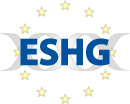Plenary Sessions (PL1 – PL5)
The plenary sessions are the most prestigious sessions of the congress. These are exhaustive reviews of major subjects and state of the art techniques within the specialty, addressed to all participants. Speakers in plenary sessions are invited and are among the most renowned in their field of expertise.
Plenary sessions are scheduled at “prime time” in the programme, unopposed to other activities in order to achieve maximal attendance. Speaking time varies: 30 minutes in PL1, 15 minutes for talks in PL2, and 45 minutes in PL3, PL4 & PL5.
Concurrent Symposia (S01 – S20)
The symposia are sessions in which invited speakers share new results on a given topic with other researchers. The aim is to reflect and compare data with other perhaps contradictory results and to discuss new hypotheses and concepts for further research with well established colleagues.
In every concurrent symposium three 30-minute lectures will be presented, that provide an update and understanding of new developments and innovations in a certain area.
Educational Sessions (E1 – E16)
The Scientific Committee of the ESHG determines topics for these 60 minutes sessions which will best serve the educational needs of the attendees. Particular care is taken to ensure that these sessions address basic issues and focus on the educational aspect. Those sessions are not intended for experts in the respective fields, but are designed to give a general basic introduction to a particular topic.
Note that all of these sessions (except E01) are available as on-demand sessions only. This should enable you to schedule the viewing at your discretion.
On Monday, June 8 at 14:45 – 15:15 and Tuesday, June 9 at 14:15-14:45 attendees will have the possibility to chat directly with educational session speakers.
Concurrent Sessions (C01 – C31)
The most notable and exciting work from all abstracts submitted to the conference will be honoured with an oral presentation in these sessions. Presenters are expected to explain their work and answer questions from the audience. Speaking time for concurrent session is 15 minutes including time for discussion. Two of the concurrent sessions are dedicated to the best posters, which will receive a 3 minute short presentation in front of the audience, followed by a discussion at the Electronic Posters.
Workshops (W01 – W18)
Workshops are sessions in which the speakers are expected to share with the audience their personal experience in a field, either clinical or basic. These sessions are addressed to participants who wish to acquire practical knowledge on a specific subject, and therefore an interactive discussion during or at the end of the workshop is expected.
“ELPAG” Track
The ELPAG Track (Ethical, Legal and Psychosocial Aspects in Genetics) has a special focus on the psychosocial impacts of genetics and genetic counselling. They are not only intended for Genetic Councellors and Genetic Nurses, but address issues of relevance to all experts in the field of Human Genetics. All sessions related to this track can identified with the following tag:
![]()
e-Poster Viewing with Authors
e-Posters are numerically the major scientific presentations of the meeting. Most attendees bring an e-Poster showing data and progress with their personal research. e-Posters offer an excellent opportunity for people interested in a particular topic to meet and exchange ideas and network with other researchers. e-Posters should NOT be used to advertise a product or service. Like a paper, an ePoster abstract should detail the focus of the presentation and the way(s) in which it contributes to the body of knowledge in its field.
The three 45-minutes slots marked “e-Poster Viewing with the Authors” should be used for communication and interaction with the e-Poster authors, who are requested to be available via chat at these times. e-Posters will generally be on display during the whole conference for free e-Poster viewing in the virtual platform.
Corporate Satellites (CS)
There are a number of corporate satellites planned within the main conference programme. Sponsors are approved as reputable and relevant by the Scientific Programme Committee, but the detailed content of the presentation is proposed directly by the sponsors and under their responsibility. Neither the ESHG nor the organisers have endorsed the content in any way.


